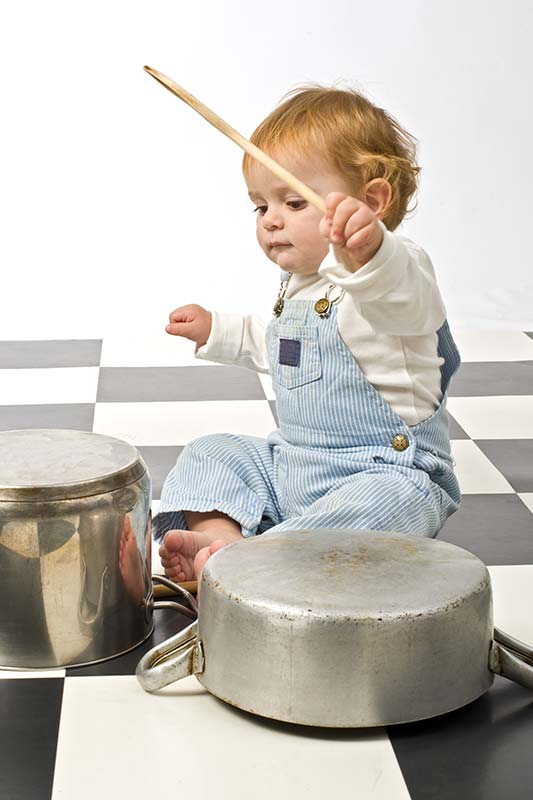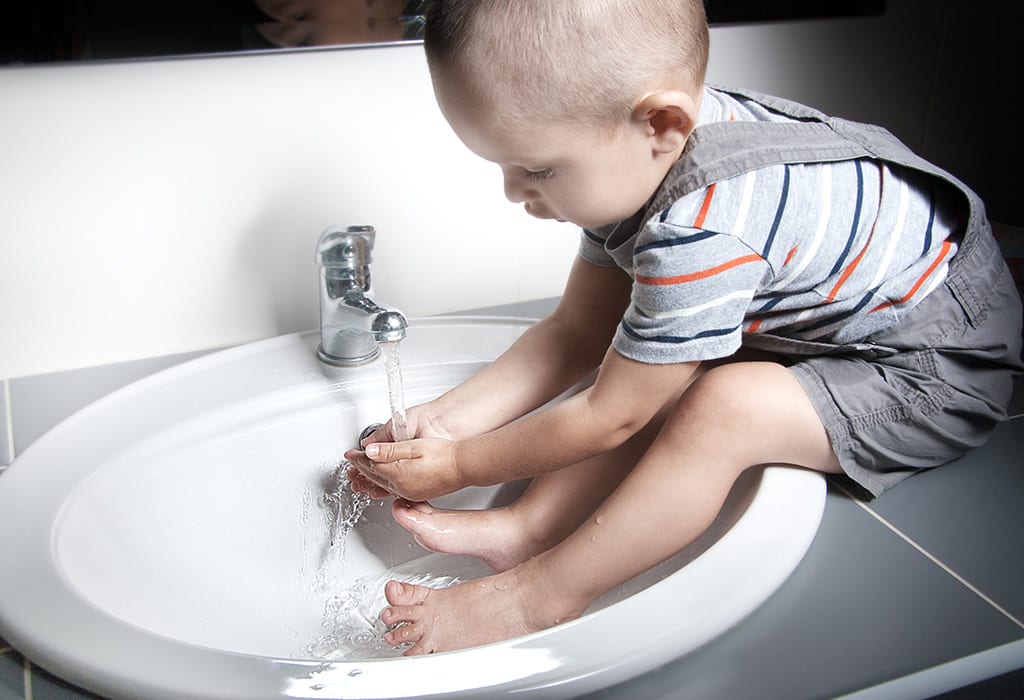Children who become invested in self-improvement at an early age are likely to experience many benefits in life. But it can be a bit difficult to know exactly how to teach children about self-improvement. Fortunately, these strategies can help you raise confident children who are invested in becoming The best version of themselves.
Balancing Self-Acceptance with Self-Improvement
It is important to let your children know that they can love themselves And although at the same time they are trying to They get better. You don't want them to think that they won't be happy with themselves until they lose 10 pounds or make the all-star team.
Help your child identify his strengths.
Ask them what they like about themselves. Make sure to identify traits that reflect their personality, not just their physical appearance. While it's good for a child to think they're beautiful, children's opinions of themselves should go beyond their appearance.
Identify the things they would like to improve.
Whether they want to become better basketball players or want to be friendlier to kids who are being bullied, identify concrete steps they can take to work in those areas.
You may need to help your child develop some self-awareness. For example, if they insist they're the smartest kid on the planet, gently remind them that there's always room for improvement. Or if they say they're a terrible singer, ask what they can do (such as take vocal lessons) to improve their talent. Then, discuss whether it's actually a priority they want to improve on or not.
keep talking
Have regular conversations about the fact that everyone has weaknesses and that it's important to prioritize what you want to work on while accepting that you can't excel at everything.
Praise things inside your child
You may think you're building up your child by saying, "You're so handsome." But praising them for things beyond their control isn't helpful.
Instead, praise him for the choices he makes by saying things like, “Great job brushing your teeth right after breakfast. You'll have such clean, sparkling teeth!” or, “I really like that you chose to brush your hair today before I even reminded you.”
It's also important to avoid emphasizing the score. If you say things like, "I'm proud of you because you got a 100 on the spelling test," your child will think that their score matters more than anything else. This can lead to problems down the road (for example, your child may think that cheating is okay as long as they get a good grade).
Instead, focus on his effort and use character-building praise by saying, “It seems like all that studying has really paid off. Great job studying hard for your test.”
Praising your child's choices will help them stay focused on the controllable things in life – like their efforts and attitude.
Set a set of goals together.
It's good for children to continually work toward new goals. Goals can include anything from "I want to learn how to swim" to "I want to make new friends at school."
Help your child set challenging but achievable health goals. If your child sets the bar too high, they may be setting themselves up for failure. On the other hand, if their goals are too easy, they won't actually improve.
You may need to provide some guidance to help him put it in place. realistic goalsIf he has a long-term goal, such as saving enough money to buy a car, help him set short-term goals. A goal might be to:Save $100 a month“Or, I put half of my kindergarten money into a savings account every week.”
Determine how your child can track their goals. A planner, app, or calendar that helps them monitor their progress can help them stay motivated.
Post-event debriefing
Regardless of whether your child succeeds, how they process the event determines how much they learn. Talk to your child about their experience, and you'll turn everyday events—from their performance in school to their interaction with a friend on the playground—into life lessons.
If he scores four points in a basketball game, talk about the game together. Ask him what he did well and what he wants to continue doing. The goal is to celebrate his success while identifying areas for improvement.
Don't reserve these conversations just for sports or academics. Debrief after social events, too. Ask questions like, "What did you do well at the birthday party today?" Your child might say, "I gave the birthday boy a big hug." Then ask, "Is there anything you could do better next time?" Identify something.
Look for teachable moments and have conversations with your child. There may be times when you need to point out areas where they can improve, and other times, you may be able to identify things you want to do better on your own.
Encourage problem solving
It may be tempting to fix your child's problems for them, but managing their activities and bailing them out at the first signs of struggle is an insult.
Whether they say their academic assignments are too difficult, or express concern that they won't be able to complete their work on time, ask,What can you choose to do about it?"
Show them that they have choices in how they respond to a problem. Talk about many different ways to solve a single problem. Children with good problem-solving skills feel empowered to tackle problems head-on. Every problem your child faces is an opportunity for them to improve themselves.
Health education about self-talk
It is important for children to learn how to talk to themselves with compassionAfter all, a child who calls himself stupid when he makes a mistake will not work to improve himself.
When your child says overly negative things, like, “I’ll never be a good player,” help them see that their thoughts aren’t necessarily true. Ask a question like, “What’s another way to look at the situation?” With a little help from you, they may be able to remind themselves that with practice, they can improve.
The key is to avoid saying what you want them to think. If you reassure them, “No, honey, you’ll be a great player one day,” they won’t learn to change their way of thinking.
While it's good to offer support and reassurance, your overall goal should be to help your child learn how to become their own cheerleader.
Train your child
There will be times when your child may need lessons in humility and other times when they could use a little more subtlety in their manners. Every mistake they make or problem they encounter is an opportunity to practice.
Coaching can include anything from saying, “Please try again” to “I’ve noticed you’re having some difficulty getting ready for school on time. What do you think you can do to fix that?”
Avoid the temptation to rescue your child or prevent them from making mistakes. Instead, turn frustrating incidents and failed experiences into opportunities for personal growth.
Incentive Offer
There will be times when your child isn't enthusiastic about change. In these cases, some additional incentives may be just what your child needs to do better.
If your child isn't motivated to do chores or could be less interested in homework, make their privileges conditional on completing their work. Let them play video games after their homework is completed. Or, play a board game together as a family once their chores are done.
You don't need to keep rewarding your child for everything they do forever. Once they develop better habits, you can reduce the frequency of rewards you use.
Free and Low-Cost Reward Ideas for Kids
Empowering your child
Self-improvement doesn't have to be about becoming smarter, better-looking, or more athletic just for vanity. Instead, your child can learn to improve themselves so they can make a difference in the world.
It's important for children to know that their goals can be bigger. Realizing they can use their skills, talents, and hard work gives them a sense of meaning and purpose.
If your child's goal is to get an A in science, talk to them about how they can use their science skills to make a difference in the world by inventing a product that might help people or do something that could help the environment.
Show your child that they can make a difference in someone's life every day by being kind, generous, and helpful. Have them participate in community service projects or work together to perform acts of kindness. Whether they make cards to send to people in nursing homes or participate in a charity fundraiser, empower them to find ways to make a difference.
last word
To stay involved in your child's quest for self-improvement, you'll need to provide plenty of guidance along the way. Make sure your child's goals are healthy. If your child begins to follow strict diet or exercise regimens, step in and address the situation. Or, if they start studying so hard that they don't get enough sleep, step in and help them see how their habits are causing more harm than good.
Be a good role model for your child, too. Talk about the ways you're actively working toward self-improvement, and you'll inspire your child to do the same.











